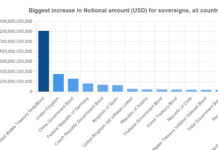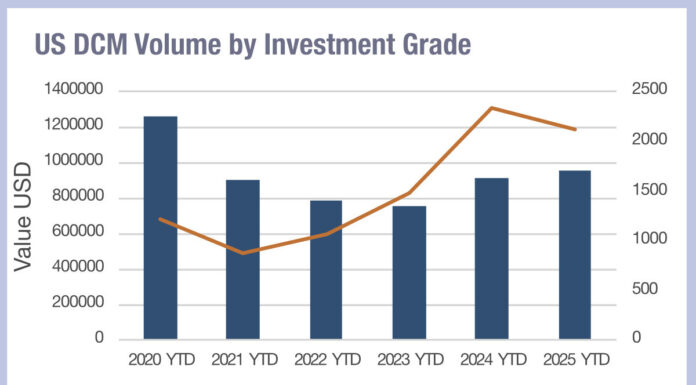BNY Mellon and HSBC are each partnering with pre-trade bond data specialist Algomi, to expand corporate bond trading opportunities for their custody clients and the wider market. The firms expect the collaboration to bolster fixed income market liquidity by giving their clients the ability to make select holdings information available anonymously on the Algomi Honeycomb network of market participants. BNY Mellon and HSBC expect to roll out the initiative to clients early next year, potentially with other custodians.
Algomi believes the two custodians have approximately US$25 trillion in fixed income assets under custody (AUC), out of the US$80 trillion global pool. BNY Mellon’s business is estimated to capture around 45-50% of US AUC, while HSBC has approximately 30% of Asia-Pacific AUC, giving the initiative a broad range of bonds.
Niall Cameron, global head of Corporate & Institutional Digital at HSBC, said in a statement, “The global reach of our markets and custodian businesses, and the presence of both in Asia, MENA and Europe offer specific benefits to our clients. By collaborating with a cutting edge fintech firm, in parallel with a leading US custodian business, we can use digital innovation to create a multi-trillion dollar bond pool that spans the globe.”
The Algomi offering now comprises a set of tools that help to support pre-trade decision making when buying bonds. The original Synchronicity tool gathers the data banks have internally from multiple data sources, including email enquiries, voice enquiries, trade records and new issue allocations, then puts that data into the hands of the firm’s sales traders so they can better source liquidity internally.
Honeycomb signposts that data to buy-side firms, while Euronext Synapse pulls that together on an interbank basis. Algomi ALFA, which was acquired from AllianceBernstein earlier this year, provides the front end to help traders identify where liquidity can be found in order to support trading decisions. The new custody offering adds another element to sourcing liquidity.
“As a bond holder, I can get an alert that a bond I hold is about to trade,” says Stu Taylor, CEO of Algomi. “I can then opt in to get involved in that transaction and add volume to that trade. The data has to stay very secure, for example it is not even visible to the trading desk within the bank, so we have put infrastructure into the asset servicing division that validates the data is there, and acts as an alert for people who might want to interact with orders. In doing that you would probably come over the wall to the bank’s trading desk who can then engage with the original enquiry.”
The initiative was led by the banks who first approached Algomi; pullginit together took 18 months, with the lion’s share of work around getting agreements around data and infrastructure in place. Custody clients of BNY Mellon and HSBC can make their bond holdings held in custody available on a non-disclosed basis through a system powered by Algomi’s Honeycomb network, and delivered through Algomi ALFA.
Counterparties on the network will be able to query those bond holdings, which will alert the custody holder, and give them the ability to instruct their dealer to trade on their behalf while protecting the client’s identity. This can be done directly through BNY Mellon or HSBC affiliated broker-dealer’s trading desk.
Generating new potential sources of liquidity is a constant source of innovation in the bond markets, particularly in credit. The Securities Industry and Financial Markets Association reports that turnover in the corporate bond market has shrunk while outstanding debt has risen by 75% in the last decade. In a February 2017 report by the Financial Conduct Authority a fixed-income trading house reported that the number of corporate bond trades resulting from orders and request for quotes has declined from around 65% before the financial crisis to 20-25% in 2017.
Mark Ledwards, head of Sell Side Division at Algomi said, “Custodian data is often perceived to be the ‘holy grail’ of inventory in bond markets, yet the need for data privacy has rightly prevented this resource from being used to its full potential. A permission-led approach that gives custody members the power to only reveal their data if they wish to interact with trade enquiries from the market, provides a mutually beneficial model that enhances liquidity across the ecosystem.”
©TheDESK 2017
©Markets Media Europe 2025


























